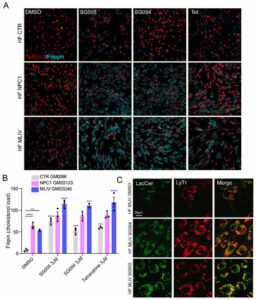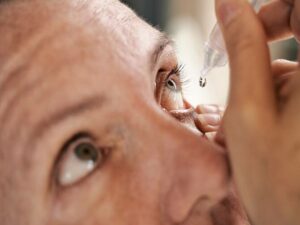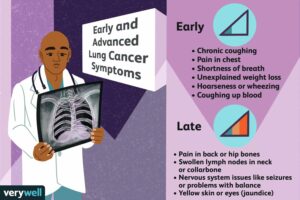HIV symptoms in women may include fatigue, fever, night sweats, weight loss, and swollen lymph nodes. It is important for women to be aware of these symptoms and seek medical attention for early detection and treatment of HIV infection.
HIV, or human immunodeficiency virus, is a serious health condition that affects millions of people worldwide. While both men and women can contract HIV, women may experience unique symptoms that can indicate the presence of the virus. Recognizing these symptoms is crucial for early diagnosis and effective management of the infection.
We will explore the common symptoms of HIV in women, discuss the importance of timely medical intervention, and offer guidance on prevention strategies. By understanding and being proactive about HIV symptoms, women can take control of their health and well-being.
Table of Contents
Hiv Transmission And Prevalence Among Women
Women are significantly affected by HIV, with a considerable number of cases reported globally. Demographically, the prevalence of HIV among women varies across regions and countries. While no specific transmission mode is exclusive to women, common modes of HIV transmission include unprotected sexual intercourse, sharing contaminated needles, and mother-to-child transmission during childbirth and breastfeeding.
Vulnerable groups of women are at a higher risk of contracting HIV. These include sex workers, transgender women, women who inject drugs, and women in abusive relationships. Factors such as poverty, lack of education, gender inequality, and stigma contribute to the increased vulnerability of these groups.
| Vulnerable Groups of Women | Risk Factors |
|---|---|
| Sex Workers | Multiple sexual partners, inconsistent condom use |
| Transgender Women | Discrimination, limited access to healthcare |
| Women who Inject Drugs | Sharing contaminated needles, risky sexual behaviors |
| Women in Abusive Relationships | Lack of control over sexual encounters, coerced drug use |
It is important to provide education, access to healthcare, and support to these vulnerable groups to prevent HIV transmission and improve the overall well-being of women affected by HIV. By addressing the underlying socio-economic factors that contribute to their vulnerability, we can work towards reducing the impact of HIV on women.
Early-stage Hiv Symptoms In Women
| Early-Stage HIV Symptoms in Women |
HIV symptoms in women may vary depending on the stage of the infection. During the asymptomatic stage, which can last for several years, a woman may not experience any noticeable symptoms. It is important to note that this does not mean she is not infected with HIV.
In the early stages of HIV infection, women may experience mild, flu-like symptoms that can easily be mistaken for other illnesses. These symptoms can include fever, fatigue, sore throat, swollen lymph nodes, and body aches. It is crucial for women to pay attention to these symptoms and seek medical attention, as early detection and treatment are key in managing HIV.
Testing for HIV is the only way to confirm if a woman is infected. It is recommended for all sexually active individuals to get tested regularly to ensure early detection and timely treatment. If you suspect you may have been exposed to HIV or are experiencing any symptoms, it is important to consult with a healthcare professional as soon as possible.
Underdiagnosed And Atypical Symptoms
HIV symptoms in women often include underdiagnosed and atypical manifestations, requiring a vigilant approach to identification and treatment. Detecting these symptoms early is crucial for effective management and support.
Blog post title Heading SubheadingLess Common Hiv Symptoms In Women
ParagraphRecognizing HIV symptoms in women can be challenging as they tend to be underdiagnosed and atypical. While some symptoms overlap with other conditions, it is crucial to be aware of the less common signs that may indicate HIV infection in women.
ParagraphWomen may experience atypical symptoms such as excessive fatigue, night sweats, persistent yeast infections, and recurring bacterial vaginosis. These symptoms are often mistaken for other health issues, leading to delayed diagnosis and treatment.
ParagraphIt is important to recognize the significance of identifying atypical signs of HIV in women. By being aware of the less common symptoms, healthcare providers can improve early detection and provide appropriate care. Increased awareness among women about these symptoms can also promote timely testing and diagnosis.
ParagraphOverall, understanding the diverse range of HIV symptoms in women is crucial for early detection and effective management of the infection. By being vigilant and seeking medical attention when experiencing any unusual or persistent symptoms, women can take control of their health and well-being.
Impact Of Hiv On The Reproductive System
- Maternal transmission to newborns: HIV can be transmitted from a mother to her child during pregnancy, delivery, or breastfeeding. Antiretroviral therapy (ART) can significantly reduce the risk of transmission.
- Long-term implications for reproductive health: HIV infection can lead to complications in fertility and pregnancy. It can affect the menstrual cycle, increase the risk of sexually transmitted infections, and cause challenges in conceiving or carrying a pregnancy to full term.
Hiv Symptoms Specific To Women
| HIV Symptoms Specific to Women |
|
Gynecological manifestations of HIV
Women infected with HIV may experience specific symptoms related to their gynecological health. Genital ulcers, abnormal discharge, and recurring infections are common manifestations. These symptoms can occur due to the weakened immune system, making women more susceptible to infections. HIV is also linked to an increased risk of cervical cancer. The virus can accelerate the progression of cervical lesions, leading to cancer development. Regular cervical cancer screening is crucial for early detection and treatment. |
Psychological And Behavioral Changes
Psychological and behavioral changes are common symptoms experienced by women with HIV. These changes can have a significant impact on their mental health and well-being.
One major challenge faced by women with HIV is the effect it has on their self-esteem and intimate relationships. The stigma associated with the virus can lead to feelings of shame and guilt, causing a decline in self-esteem. This can further affect their ability to form and maintain intimate relationships. It is important for women living with HIV to seek support and develop coping strategies to navigate these challenges.
Acquiring support from healthcare professionals, support groups, or loved ones can provide a sense of belonging and reduce feelings of isolation. Counseling and therapy can also help women cope with the psychological and emotional impact of living with HIV. Developing healthy coping strategies, such as mindfulness techniques, exercise, and self-care, can empower women to maintain their mental well-being and navigate the challenges associated with HIV.
Late-stage Hiv Symptoms And Aids Development
When HIV progresses to the late stage, it can lead to the development of AIDS. Late-stage HIV symptoms can vary and may include severe symptoms and opportunistic infections. These symptoms can affect different parts of the body, such as the lungs, brain, and gastrointestinal system. Examples of severe symptoms may include persistent cough, shortness of breath, difficulty swallowing, and memory loss.
In addition to severe symptoms, HIV also weakens the immune system, making the body more susceptible to opportunistic infections. These infections can be caused by viruses, bacteria, fungi, or parasites and often occur in individuals with advanced HIV disease. Some common opportunistic infections associated with late-stage HIV include pneumocystis pneumonia, candidiasis (thrush), and cytomegalovirus.
If you suspect you may have late-stage HIV or AIDS, it is important to seek proper care and treatment options. Antiretroviral therapy (ART) is the recommended treatment for HIV/AIDS, and it can help slow down the progression of the disease and improve the overall health and quality of life for individuals living with HIV.
Long-term Health Outcomes And Management
A woman with HIV may experience various symptoms that can impact her long-term health outcomes and management. Understanding these symptoms and managing them effectively is crucial for maintaining her overall well-being and quality of life. Proper medical care and support can play a significant role in managing these symptoms and ensuring a better quality of life for women living with HIV.
Empowering Women Through Education And Prevention
The importance of HIV prevention strategies for women cannot be overstated. Recognizing the unique challenges that women face in terms of their vulnerability to HIV, it is crucial to empower them with the knowledge and resources needed to protect themselves.
One of the most effective ways to prevent HIV transmission is through safe sex practices and condom use. Educating women about the importance of using condoms consistently and correctly can significantly reduce their risk of contracting the virus. Additionally, providing access to free or affordable condoms can ensure that women have the means to protect themselves.
Another important aspect of empowering women is ensuring access to accurate information and resources. Many women may not have access to comprehensive sex education or may be misinformed about HIV transmission and prevention. By providing reliable sources of information and promoting awareness campaigns, we can equip women with the knowledge needed to make informed decisions about their sexual health.
Empowering women through education and prevention is key to reducing the spread of HIV and improving the overall well-being of women around the world. By addressing the unique needs and challenges that women face, we can work towards a future where every woman has the tools and resources to protect herself from HIV.
Breaking Stigma And Promoting Support
In order to break the stigma surrounding HIV, it is crucial to enhance awareness and empathy among the general public. This can be achieved by promoting open conversations about HIV and educating people about the reality of the virus. By eliminating HIV-related stigma, individuals living with HIV can feel more supported and empowered to seek the care and support they need.
Advocating for comprehensive care and support services is also essential. This includes providing accessible and affordable healthcare, mental health support, and resources for individuals who are affected by HIV. By ensuring that comprehensive care is available, we can improve the quality of life for women living with HIV and empower them to lead healthy and fulfilling lives.
Frequently Asked Questions Of Hiv Symptoms For A Woman
What Are The Common Hiv Symptoms In Women?
HIV symptoms in women can vary, but common symptoms include fatigue, fever, weight loss, night sweats, and swollen lymph nodes.
Can Hiv Cause Vaginal Discharge?
Yes, HIV can sometimes cause vaginal discharge. It’s important to note that not all cases of vaginal discharge are due to HIV, so it’s best to consult a healthcare professional for proper diagnosis.
Are There Any Early Signs Of Hiv In Women?
Early signs of HIV in women may include flu-like symptoms such as fever, sore throat, and body aches. However, it’s important to get tested for an accurate diagnosis as these symptoms can also be caused by other illnesses.
Conclusion
Recognizing and understanding the symptoms of HIV in women is crucial for early detection and proper management. The symptoms can vary, ranging from flu-like symptoms to more severe issues such as pelvic inflammatory disease or cervical cancer. By staying informed and seeking medical advice, women can take proactive steps towards their sexual health and overall well-being.
Remember, early detection leads to better outcomes and improved quality of life. Stay informed, stay healthy.







